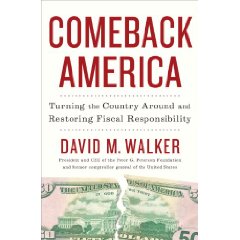
![]() Absolutely Righteous, Mis-Leading Title
Absolutely Righteous, Mis-Leading Title
June 20, 2010
Derek Bok
First off, I'm back. After three months integrating into a field position with a prominent international organization, with three days off the whole time, I am finally able to get back to reading, and have about fifteen books on water I was going to read for UNESCO but will now read and review for myself. Look for two reviews a week from this point on, absent another tri-fecta (volcano, storm, minor coup).
This book is the first of three books that I am reviewing this week, the other two are The Hidden Wealth of Nations, which will be a five, and Identity Economics: How Our Identities Shape Our Work, Wages, and Well-Being, probably a five as well, but I continue to be stunned as how people limit their references to the last 10 years when so much has been done that is relevant in the last 50.
This book is not about the politics of happiness. It is more about the possibilities of public administration of happiness.
This will be a long review–apart from the author being one of a handful to truly top-notch minds with a historical memory, the topic is important–much more important than I realized until I starting following unconventional economics (ecological economics, true cost, bio-mimicry, sustainable design, human development and non-financial wealth).
The author opens with Bhutan and its Gross National Happiness (GNH) concept, with four pillars (good governance, stable-equitable social development, environmental protection, preservation of culture). Elsewhere (on the web) I learn that the 72 indicators are divided into nine domains (time use, living standards, good governance, psychological wellbeing, community vitality, culture, health, education, and ecology).
From there the author moves to the 1800's and Jeremy Bentham, and of course our own Founding Fathers who included “the pursuit of happiness” in the Declaration of Independence. As I have commented before in reviewing other books such as 1776; What Kind of Nation: Thomas Jefferson, John Marshall, and the Epic Struggle to Create a United States, and The Thirteen American Arguments: Enduring Debates That Define and Inspire Our Country, happiness in those days was interpreted as fulfillment, “be all you can be,” not frivolous joy of “excessive laughter.”
The author identifies and discusses six factors pertinent to happiness in the US context as he defines it: Marriage; Social Relationships; Employment (wherein trust in management is VASTLY more important than the paycheck); Perceived Health; Religion (in sense of community not dogma) and Quality of Government (as which point I am reminded of George Will's superb Statecraft as Soulcraft; Quality of government is further divided into Rule of Law, Efficient Government, Low Violence and Corruption; High Degree of Trust in Public Officials and Especially Police; and Responsive Encounters by Citizens with Government.
Note: 30 million in US population are “not too happy.”


